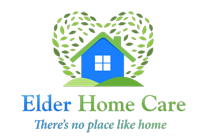One day while you are preparing dinner, your mom asks where her mother is. Or demands that she needs to pick up the kids from school. You hesitate for a moment, and wonder what she’s talking about. Her children, including you, are fully grown! She begins to get agitated, insisting that the children are waiting, and that she needs to hurry up home to get dinner ready. Telling her that her children are grown is not going to help, because she is in her own moment.
This is typical sundowning behavior among those with various cognitive disorders, including Alzheimer’s Disease. Sundowning in a loved one who has dementia is a behavior that takes many caregivers by surprise. It can be frightening and unsettling to a caregiver, especially when witnessing it for the first time. Most are not prepared for this change in behavior and do not fully understand what is happening. But there are ways of coping with this syndrome and preparing for it that will ease the stress of caregiving for you, and your loved one.
So, what do you do when this behavior occurs?
Although it can be upsetting to see your mother in a different reality, getting yourself upset only exacerbates the situation. So, take a deep breath, center yourself and join your mom in the moment. Forcing her to accept that the children are grown will cause more agitation and result in negative consequences. By joining her and validating her feelings, you will be able to reduce her anxiety and agitation and allow her to feel a sense of security. Validation Therapy is a method of communication that helps reduce stress and anxiety, and many caregivers find it useful when their loved ones are sundowning. You can learn more about this method by following this link: https://vfvalidation.org/.
In addition to Validation Therapy, there are some ways that you can help lessen the effects of sundowning or prepare for it.
Try sticking to the same schedule every day. For a person living with dementia, daily routine is comforting because they know what to expect, and don’t have to constantly think about what comes next.
Spend time outside to take in the sunshine. You can do simple activities such as gardening, going for a walk, or driving down to the beach and watching the boats sail by. Have you even been inside the house recovering from an illness, and feel a bit of depression sinking in? Just going out to the pharmacy to pick up your medication can give you a lift. Taking in the light helps adjust our circadian rhythms, or our “internal clock” and helps improve our mood and sleep cycle. The wake/sleep cycle of people with dementia can reverse, with many spending their nights awake and daytime sleeping.
Wind down the day when the afternoon sets in – around 3:00. Play soft music or dance! Music activates the parts of the brain not affected by Alzheimer’s Disease and can help improve the mood. It also helps bring out good memories and reduces anxiety.
Try not to add difficult activities or appointments in the afternoon hours. Sitting outside in the afternoon sun, singing or doing activities such as folding towels or helping to prepare dinner by snapping peas or mixing ingredients can help keep the mind passively active, without frustrating steps to follow.
Once you begin to adapt your loved one’s schedule and understand when sundowning typically occurs for him or her, you can better manage the symptoms, which may lead to an easier caregiving role for you and a calmer day for them.
Elder Home Care provides trusted home care services to seniors living on Long Island. As your loved one ages, it is beneficial for them to keep their minds active, sharp and alert by exercising the brain. Our caregivers can assist with favorite hobbies, showering, dressing, running errands, preparing favorite meals, medication supervision, encouraging exercise and proper nutrition. It is also important for seniors to keep their spirits high. We are committed to providing the highest level of care for a wide range of needs. Most importantly, we are here to help and to provide the care your loved one deserves. Reach us at 516-405-5910 or visit our website at https://www.ehcus.com/.








